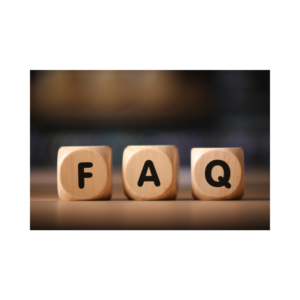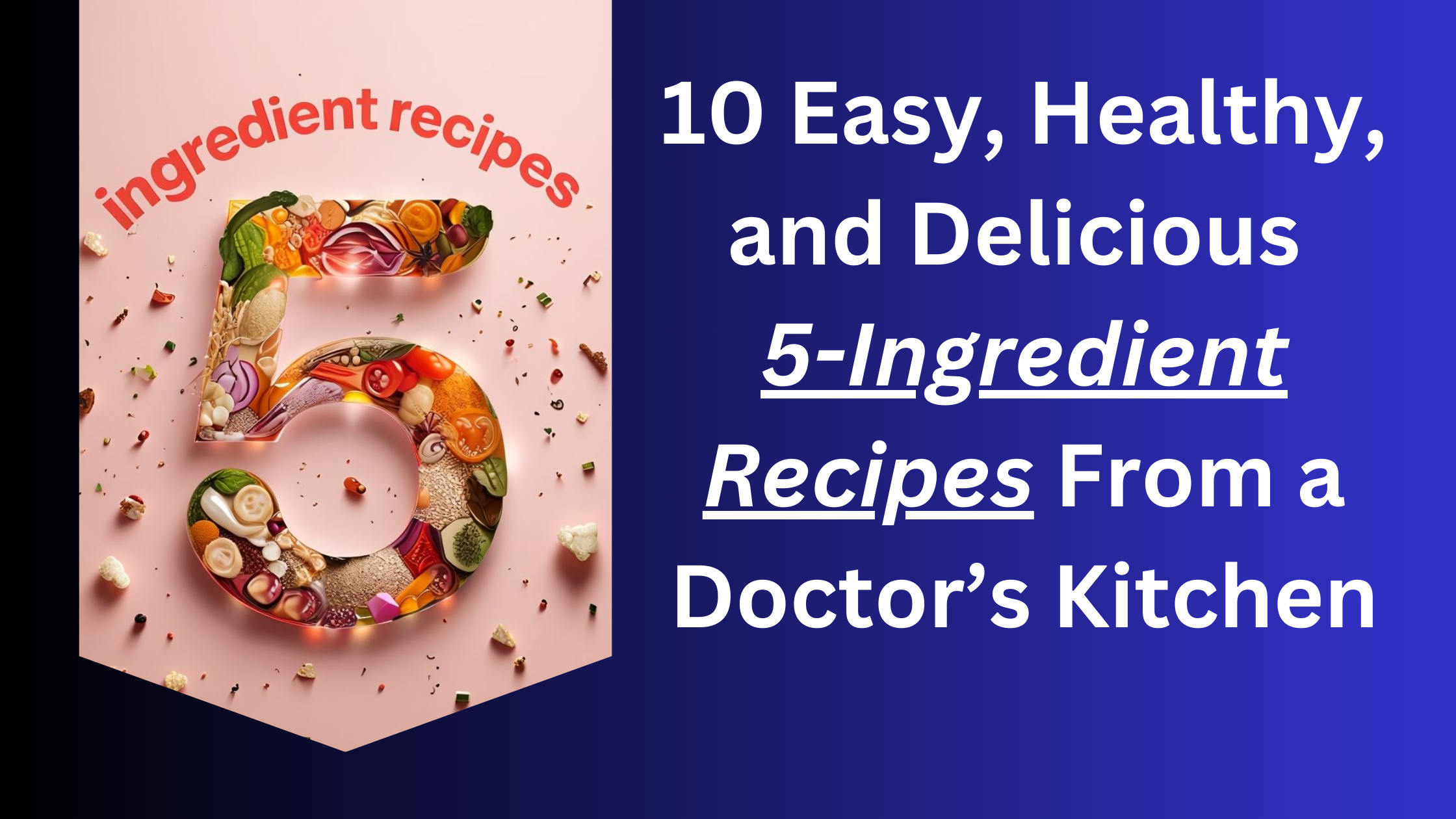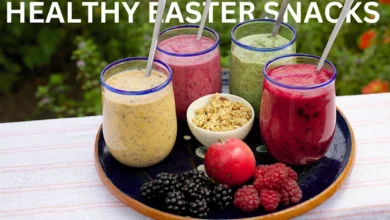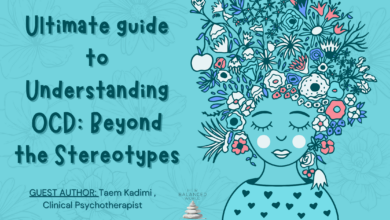Your Ultimate Evidence Based Guide to Natural ADHD Supplements
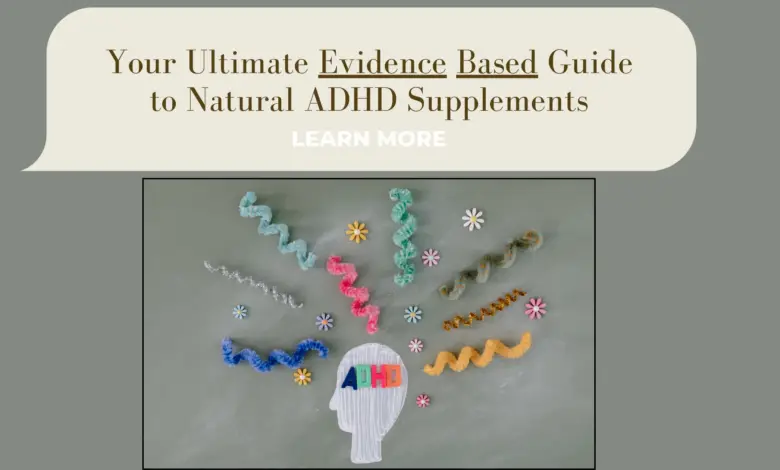
Introduction: Beyond Medication for ADHD
Attention-Deficit Hyperactivity Disorder (ADHD) affects millions of children and adults worldwide, presenting challenges with attention, impulsivity, and hyperactivity. While prescription medications remain the gold standard treatment, many families seek Natural ADHD Supplements to enhance symptom management or address side effects. This comprehensive guide explores the science behind natural supplements for ADHD, separating evidence-based options from marketing hype.
Supporting overall health is crucial for managing ADHD, as nutritional deficiencies can impact cognitive function and focus. A well-balanced diet plays a key role in brain health. Read more about The Ultimate Guide to High-Protein Diets in 2025 to understand how protein intake influences neurotransmitters like dopamine, which plays a role in ADHD.
Understanding the Science: How Supplements May Help ADHD
ADHD involves complex neurological pathways, particularly related to neurotransmitters like dopamine and norepinephrine. Some natural supplements may support these pathways, addressing nutritional deficiencies that can exacerbate symptoms or providing compounds that enhance cognitive function. However, it’s crucial to approach supplements with realistic expectations and scientific evidence in mind.
Evidence-Based Supplements for ADHD: Ranked by Scientific Support
To help you navigate the many options available, we’ve ranked supplements based on the strength of scientific evidence supporting their use in ADHD management:
| Supplement | Evidence Strength | Effectiveness | Best For |
|---|---|---|---|
| Omega-3 Fatty Acids | Strong (Multiple meta-analyses & RCTs) | Modest improvements in ADHD symptoms | General symptom support |
| Melatonin | Strong (Well-documented in sleep studies) | Highly effective for sleep issues, not core ADHD symptoms | Sleep problems in ADHD |
| Zinc | Moderate (Some RCTs, primarily in deficient populations) | May help impulsivity in zinc-deficient individuals | Those with confirmed zinc deficiency |
| Iron | Moderate (Clinical trials in iron-deficient ADHD children) | Improves symptoms only in iron-deficient individuals | Those with confirmed iron deficiency |
| Vitamin D | Weak (Mostly correlational studies) | Association with ADHD, but no direct evidence for symptom improvement | Those with confirmed vitamin D deficiency |
| Magnesium | Weak (Limited RCTs, some positive observational studies) | May help with hyperactivity, needs more research | Possible adjunct therapy |
| Multivitamins | Weak (Few ADHD-specific studies) | May address nutritional gaps but unclear direct ADHD benefit | General nutritional support |
| Probiotics | Preliminary (Emerging gut-brain connection research) | Theoretical benefits via gut-brain axis, limited ADHD studies | Digestive issues alongside ADHD |
1. Omega-3 Fatty Acids: The Brain-Boosting Powerhouse (Strong Evidence)
What the research shows: Multiple meta-analyses confirm modest but real improvements in ADHD symptoms, particularly for attention, impulsivity, and hyperactivity. While less powerful than prescription medications, omega-3s offer a science-backed complementary approach. I like THIS ONE or THIS ONE (you can get an extra 10% off)
Key findings:
- Higher EPA content shows greater efficacy than DHA
- A 2018 meta-analysis involving 628 participants demonstrated benefits in cognitive function and symptom reduction (Hawkey & Nigg, 2014)
- A 2023 Cochrane review found low-certainty evidence supporting omega-3s for ADHD symptom improvement (James et al., 2023)
Recommended dosage: 1-2g daily with at least 400mg EPA content for optimal results
Safety profile: Generally well-tolerated with occasional mild gastrointestinal issues. Choose mercury-free fish oil or algae-based options for vegetarians.
A diet rich in essential fatty acids, such as those found in salmon, walnuts, and flaxseeds, can support cognitive health. If you’re looking for affordable ways to incorporate omega-3-rich foods into your meals, check out 10 Budget-Friendly Meals Your Family Will Actually Love.
2. Zinc: Supporting Dopamine Regulation (Moderate Evidence)
Research shows: Zinc helps regulate dopamine and may enhance medication effectiveness, particularly in zinc-deficient individuals. Research shows more consistent benefits in regions with widespread zinc deficiency. TRY THIS ZINC CAPSULES!
Key findings:
- Studies demonstrate improvements in impulsivity and hyperactivity, though results vary (Arnold et al., 2011)
- More effective in areas with common zinc deficiency (Turkey, Iran, Chile) (Yorbik et al., 2008)
- May enhance the effectiveness of stimulant medications (Akhondzadeh et al., 2004)
Recommended dosage: 30-150mg daily, but medical consultation is essential as excessive zinc can be toxic
Safety profile: High doses pose significant risks; blood testing recommended before supplementation
Zinc plays a critical role in both immune function and neurotransmitter regulation, making it a key supplement for ADHD support. Learn how to boost kids’ immunity naturally and why zinc is essential for brain function in How to Boost Kids’ Immune System: Doctor-Approved Tips from an MD (and Mom of Two).
3. Iron: Addressing a Common Deficiency (Moderate Evidence)
What the research shows: Iron supplementation may improve ADHD symptoms in iron-deficient children, but shows no proven benefits in those with normal iron levels. I LOVE THIS ONE!
Key findings:
- Research found 84% of children with ADHD had lower iron levels than control groups (Konofal et al., 2004)
- Iron-deficient children showed symptom improvement after supplementation in clinical trials (Konofal et al., 2008)
- Iron plays a crucial role in dopamine production and transportation (Cortese et al., 2012)
Recommended dosage: 10mg/day for prevention; up to 80mg/day for treating deficiency (medical supervision required)
Safety profile: Excessive iron intake can be toxic; ferritin levels should be checked before beginning supplementation
4. Vitamin D: The Sunshine Supplement (Weak Evidence)
Research shows: Children with ADHD tend to have lower vitamin D levels, but evidence doesn’t yet confirm that supplementation directly improves ADHD symptoms. THIS VITAMIN D COMBO IS WHAT I RECOMMEND!
Key findings:
- Multiple studies show correlation between low vitamin D and ADHD diagnosis (Elshorbagy et al., 2018)
- Causal relationship not yet established; more intervention studies needed (Saedisomeolia et al., 2018)
Recommended approach: Test levels first and supplement only if deficient or borderline low
Safety profile: Generally safe when taken within recommended dosages
5. Melatonin: Supporting ADHD-Related Sleep Issues (Strong Evidence)
Research shows: Highly effective for addressing sleep disorders in ADHD patients, though it doesn’t directly improve core ADHD symptoms. I have tried this one and it works like a charm!
Key findings:
- Children with ADHD fell asleep 20-48 minutes earlier and slept up to 62 minutes longer with melatonin (Van der Heijden et al., 2007)
- Improved sleep often results in better daytime functioning and reduced symptom severity (Hoebert et al., 2009)
- Particularly helpful for children taking stimulant medications (Cortese et al., 2013)
Recommended dosage: 3-6mg, taken 30-60 minutes before bedtime
Safety profile: Short-term use appears safe, though long-term effects remain under study. Start with lowest effective dose.
Creating an environment that supports natural melatonin production—like reducing blue light exposure and practicing good sleep hygiene—can improve sleep quality for ADHD individuals. Discover sustainable ways to create a healthier home environment in The Ultimate Zero Waste Living Guide: Tips for a Greener Future.
Promising but Limited Evidence Supplements
1. Magnesium: The Relaxation Mineral (Weak Evidence)
What the research shows: Some studies suggest magnesium reduces hyperactivity and improves relaxation, but high-quality randomized controlled trials are lacking.
Key findings:
- May help with sleep, anxiety, and hyperactivity symptoms (El Baza et al., 2016)
- Often deficient in Western diets, potentially affecting neurological function (Kozielec & Starobrat-Hermelin, 1997)
Recommended dosage: 100-350mg/day (with medical supervision)
Safety profile: Can cause digestive issues like nausea, diarrhea, and cramps. High doses can be dangerous.
2. Multivitamins/ Multi-minerals: Addressing Nutritional Gaps (Weak Evidence)
What the research shows: Some evidence suggests improvements in emotional regulation, aggression, and cognitive function, but effects specifically on core ADHD symptoms remain unclear.
Key findings:
- Daily Essential Nutrients (DEN) showed positive results but required high doses (12 pills/day) (Rucklidge et al., 2018)
- May help more in nutrient-deficient individuals (Rucklidge et al., 2014)
Safety profile: Generally safe when taken as directed
Proper self-care, including nutrition and mindfulness, plays a role in ADHD symptom management. Learn how self-care impacts mental well-being and how to incorporate science-backed self-care habits into your routine with Mom, Love Yourself More: A Science-Based Guide to Self-Appreciation.
3. Probiotics: The Gut-Brain Connection (Preliminary Evidence)
What the research shows: Emerging research suggests gut health influences mental health, including ADHD symptoms, but specific probiotic recommendations need more research.
Key findings:
- Gut microbiome differences observed in ADHD populations (Aarts et al., 2017)
- Theoretical benefits supported by gut-brain axis research, but ADHD-specific studies limited (Pärtty et al., 2015)
Food sources: Fermented foods like kimchi, sauerkraut, and yogurt
Supplements to Approach with Caution
⚠️ WARNING: While these herbal supplements are widely marketed for ADHD, current research does not support their effectiveness, and some may pose serious safety risks or interact with medications.
| Supplement | Ineffectiveness | Risks & Side Effects |
|---|---|---|
| Ginkgo Biloba | Less effective than stimulant medications in direct comparison studies | May increase bleeding risk, especially with blood thinners; headaches, digestive upset |
| St. John’s Wort | No benefit over placebo in ADHD studies | Can interact dangerously with many medications including antidepressants, birth control, seizure medications, and blood thinners |
| Pycnogenol (Pine Bark Extract) | Some potential benefit but inconsistent results | Lacks large-scale trials; unknown long-term effects; possible dizziness, headache, mouth ulcers |
| Carnitine | No proven ADHD effect in controlled studies | Can cause nausea, vomiting, stomach cramps, diarrhea, and fishy body odor |
Beyond Supplements: Other Natural Approaches to ADHD
Mind-Body Approaches
Meditation & Yoga (Moderate Evidence):
- A 2023 systematic review found practicing yoga 2-3 times per week led to moderate improvements in ADHD symptoms, particularly in children (Cerrillo-Urbina et al., 2015)
- Short aerobic exercise sessions (20-30 minutes) may temporarily improve attention and reduce hyperactivity (Vysniauske et al., 2020)
- Mindfulness-based interventions show promise but require consistent practice (8-12 weeks minimum) (Cairncross & Miller, 2020)
Neurofeedback (Mixed Evidence):
- Parent-reported benefits tend to be stronger than teacher-rated improvements (Van Doren et al., 2019)
- A 2023 study suggested benefits may be due to behavioral rather than neurological effects (Cortese et al., 2016)
- Typically requires 30-40 sessions over 3-4 months for potential benefits
Emerging Digital Therapeutics
 The first FDA-approved video game for ADHD, EndeavorRx, is designed to improve attention in children aged 8-12. A 2023 randomized trial with 348 children found that after 4 weeks of gameplay (25 minutes per day, 5 days per week), children showed significant improvements in attention performance (Kollins et al., 2020).
The first FDA-approved video game for ADHD, EndeavorRx, is designed to improve attention in children aged 8-12. A 2023 randomized trial with 348 children found that after 4 weeks of gameplay (25 minutes per day, 5 days per week), children showed significant improvements in attention performance (Kollins et al., 2020).
Unlike regular video games, these digital therapeutics use specific algorithms to target neural pathways involved in attention. While not a replacement for medication, they represent a new class of non-drug interventions that could complement traditional ADHD treatments (Peijnenborgh et al., 2016).
Creating a Supplement Strategy: Best Practices
- Consult healthcare providers first: Always discuss supplements with your doctor, especially if taking ADHD medications
- Address deficiencies first: Test for common deficiencies (iron, zinc, vitamin D) before supplementing
- Start with strongest evidence: Begin with omega-3s if seeking a general supplement approach
- Set realistic expectations: Supplements typically offer modest benefits compared to medications
- Monitor for improvements objectively: Use rating scales or keep symptom journals to track changes
- Watch for side effects: Discontinue any supplement causing adverse reactions
ADHD Supplement Action Plan
Ready to explore supplement options for ADHD? Follow this step-by-step approach for the safest, most effective results:
✅ Step 1: Identify Nutrient Deficiencies
- Get blood tests for zinc, iron, and vitamin D levels
- Address any deficiencies under medical supervision
- Remember: supplements work best when correcting actual deficiencies
✅ Step 2: Start with Evidence-Based Options
- Begin with omega-3s (1-2g daily with ≥400mg EPA)
- Allow 8-12 weeks to assess benefits
- Use a consistent brand from a reputable manufacturer
✅ Step 3: Improve Sleep if Needed
- Consider melatonin if ADHD-related insomnia is present
- Start with lowest effective dose (typically 1-3mg)
- Take 30-60 minutes before desired bedtime
✅ Step 4: Monitor Changes Objectively
- Use validated rating scales like ADHD-RS or SNAP-IV (Free resources here)
- Keep a symptom journal noting improvements and side effects
- Track for at least 1-2 months before evaluating effectiveness
✅ Step 5: Integrate with Comprehensive Care
- Discuss all supplements with healthcare providers
- Continue evidence-based treatments (medication, therapy)
- Consider behavioral strategies and environmental modifications
Remember: Natural ADHD Supplements work best as part of a comprehensive ADHD management plan—including behavioral therapy, educational supports, lifestyle modifications, and, when appropriate, medication.
Frequently Asked Questions About ADHD
1. What is ADHD and how common is it?
ADHD (Attention-Deficit Hyperactivity Disorder) is a neurodevelopmental disorder characterized by persistent patterns of inattention, hyperactivity, and impulsivity that interfere with functioning and development. It affects approximately 5-7% of children worldwide and often continues into adulthood, with about 2.5% of adults experiencing ADHD .
2. What causes ADHD?
ADHD has a strong genetic component, with heritability estimated at 74% (Faraone & Larsson, 2019). Environmental factors like prenatal exposure to toxins, premature birth, low birth weight, and brain injuries may also contribute. Contrary to popular myths, diet and parenting styles do not cause ADHD, though they can influence symptom severity.
3. Can ADHD be outgrown?
About 60% of children with ADHD continue to experience significant symptoms into adulthood (Sibley et al., 2016). However, symptoms often change over time—hyperactivity typically decreases, while inattention and executive function challenges often persist.
4. How is ADHD diagnosed?
ADHD is diagnosed through comprehensive assessment by qualified healthcare professionals, typically including detailed interviews, symptom questionnaires, psychological testing, and ruling out other conditions. There is no single test for ADHD; diagnosis requires multiple symptoms present in multiple settings for at least six months (American Psychiatric Association, 2013).
5. Can diet alone treat ADHD?
While diet modifications and supplements may help manage symptoms, they are generally not effective as standalone treatments for moderate to severe ADHD. Research shows that medication and behavioral therapy provide the strongest evidence for symptom improvement (Wolraich et al., 2019).
6. Do all children with ADHD need medication?
No. Treatment plans should be individualized based on symptom severity, functional impairment, age, and coexisting conditions. For mild ADHD, behavioral interventions may be sufficient; for moderate to severe ADHD, medication is typically recommended, often alongside other strategies (NICE Guidelines, 2019).
7. Are natural supplements safer than prescription ADHD medications?
Not necessarily. While some perceive natural supplements as inherently safer, they lack the rigorous testing required for prescription medications. Supplements can have side effects, interact with medications, and contain inconsistent amounts of active ingredients. Always consult healthcare providers before starting any supplement (Pellow et al., 2011).
8. Can supplements replace ADHD medication?
For most people with moderate to severe ADHD, supplements cannot fully replace the effectiveness of prescription medication. However, supplements may serve as helpful adjuncts to comprehensive treatment plans or provide options for those with mild symptoms or medication contraindications (Bloch & Qawasmi, 2011).
9. How long does it take to see results from natural supplements?
Unlike stimulant medications which can work within hours, most supplements require consistent use for weeks or months before potential benefits emerge. Omega-3s typically need 8-12 weeks, while addressing nutrient deficiencies may show gradual improvement over 1-3 months (Königs & Kiliaan, 2016).
10. Are there any supplements that should never be combined with ADHD medications?
Yes. St. John’s Wort can interact dangerously with many medications, including some ADHD treatments. High doses of zinc may affect stimulant absorption. Always consult a healthcare provider before combining supplements with prescription medications (Saldaña, 2020).
Conclusion: Balanced Approach to ADHD Management
Natural ADHD supplements offer promising complementary approaches for ADHD management, particularly omega-3 fatty acids, melatonin for sleep issues, and addressing specific nutritional deficiencies. However, they work best as part of a comprehensive treatment plan that may include behavioral therapy, educational supports, lifestyle modifications, and, when appropriate, medication.
The strongest scientific evidence supports omega-3 fatty acids and melatonin (for sleep issues), while zinc and iron supplementation may benefit those with confirmed deficiencies. Other supplements show promise but require more research before definitive recommendations can be made.
Before starting any supplement regimen, consult with healthcare providers familiar with both ADHD and integrative medicine approaches. With careful selection, realistic expectations, and proper medical oversight, natural supplements may provide additional support for managing ADHD symptoms and improving quality of life.
Disclaimer: This article is for informational purposes only and does not constitute medical advice. Always consult qualified healthcare providers before starting any supplement or treatment regimen.
This post may contain affiliate links, which means I may earn a small commission if you purchase through these links—at no extra cost to you. I only recommend products and services I genuinely trust and believe can benefit my readers.
As an Amazon Associate and participant in other affiliate programs, I earn from qualifying purchases. These commissions help support the content on this blog and allow me to continue providing free, valuable information to my readers.
Your support is greatly appreciated! If you have any questions about affiliate links or my recommendations, feel free to reach out.
Additional Resources
- CHADD (Children and Adults with ADHD) – Comprehensive information and support for ADHD
- ADDitude Magazine’s Supplement Guide – Regularly updated information on supplements for ADHD
- American Academy of Pediatrics ADHD Guidelines – Evidence-based recommendations for ADHD treatment
- International Society for Nutritional Psychiatry Research – Research on nutrition’s role in mental health
- ADHD Medication Guide – Information on medications and potential interactions with supplements











